Embedded in Beirut: A communion with ancestors
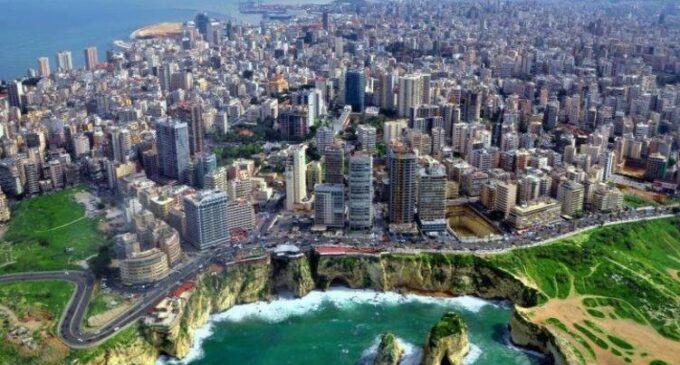
Many wished they were allowed to capture the moment with the camera, but the literary amazon from Borno beheld a different picture in the officially restricted space. She saw politics in the classification of the Jeita Groto as the “world’s 15th wonder” and not within the first 10.
“I’ve seen two or three other heritage sites around the world rated higher, but honestly, I don’t think anyone of them compares to what I just saw here,” said Mrs. Razinatu Mohammed, a Professor of Comparative Literature at the University of Maiduguri, inside the bus taking us back to the Notre Dame University, Beirut last Saturday evening.
It was the end of the first day of exploration by the visiting Nigerian mission in Lebanon.
In terms of aesthetics, the award-winning novelist may have a point. Endowment is however not enough; such categorization is based on criteria that are anything but objective.
Rank is awarded based on votes. Without a huge demography to swing the ballot, a nation with a midget population like Lebanon cannot aspire to sit on the front pew.
But beyond the prejudice of global politics there is no denying the awesomeness of the treasure nature has gifted Lebanon, nor the illustrious memories it preserves.
Indeed, overall, it is impossible to feel the eerie chill of the Jeita Groto, ascend the dizzying cedars, sample the exotic cuisine, stand in the shadow of the 12th century Crusaders fortress or the countless cenotaphs that dot Beirut and not be immediately overwhelmed by something far more transcendental – half excitement, half sobriety from a consciousness of walking the same path trodden by many ancient deities, the giants of history.
If we consider each cenotaph a paragraph, then we can only imagine how really colossal the book of Beirut is. Over the ages, sadly however, that giant tome has in part been distorted by either the footprint or fingerprint of slave-raiders, holy warriors, colonial bullies and, lately, neocolonial interlopers.
But arriving in Beirut today, the nation you still encounter is a resilient one indeed; one which, though stretched by the continuing carnage in neighbouring Syria, has simply refused to be broken by the cumulative ravages of history on a rocky homeland.
The Nigerian team – drawn from the academia, the media and the culture industry – had landed Lebanon on September 1 for the 2018 edition of what is fast becoming perhaps the most vigorous Nigerian-Lebanese conversation ever, to share national experiences with a view to forging better understanding across continents. The venue remains the Norte Dame University and the organisation was in coordination with the Cedars Institute (CI) and Wole Soyinka Foundation (WSF).
This writer was privileged to be nominated.
On a lighter note, as we soon uncovered, if nothing at all, Nigeria and Lebanon certainly suffer one similar social affliction – epileptic power supply. (Only that a semblance of “Up NEPA” was never heard in the neighbourhoods whenever public energy was restored, unlike in Nigeria.)
In Nigeria, the old stereotype is to profile the Lebanese mostly in the negative. Rightly or wrongly, a good number of their businessmen are perceived more as willing collaborators of unscrupulous power and business elite in laundering offshore illicit funds. In a left-hand homage, no doubt, to its banking system that is quite liberal.
Of course, that is not to deny that there are a good many others engaged in legitimate businesses and whose honest toil continues to water invaluably their host communities.
Apparently, it is such positivity that the CI/WSF initiative seeks to sustain.
This rather deep conversation between Nigeria and Lebanon actually began in 2014. Interestingly, it started under circumstances more funereal than fortuitous. In an extraordinary show of solidarity a year earlier, the academic community in Lebanon had opened condolence register and hosted a vigil following the demise of Chinua Achebe, the “patriarch of modern African literature”.
As the first anniversary approached in 2014, the brainchild of the Beirut memorial got talking with our own Nobel laureate, Professor Wole Soyinka, who, without hesitation, put his formidable weight behind the idea.
Thus commenced the exchange between the “Giant of Africa” and the “Pearl of West Asia”.
For more intensity obviously, the eleven-day encounter, usually initiated daily with stimulating talk by designated Lebanese scholar, is not restricted to lecture hall but also spiced with physical tour of many historic sites and monuments.
So, within three days, we had visited Byblous where the iconic Saint John Mark temple stands on the same soil the early apostles of the New Testament trod while spreading the gospel after Jesus Christ.
Not too faraway is the almost 900-year-old Crusader fortress, the clearing house of the ancient holy warriors who belched fire while enforcing Christianity. In its somewhat sepulchral magnificence, it overlooks the Mediterranean Sea.
Not forgetting the much romanticized Cedar height, shrine to the sacred shrubs rooted in the Christian Bible. So much that Lebanon is forever celebrated thus in Psalm 92:12: “The righteousness flourish like palm tree and grow like the cedar in Lebanon”.
Little wonder then that in post-Independence Lebanon, the tree is easily accorded the status of a cultural totem. It features in her national flag, currency and postage stamp.
In ancient civilizations, that Cedar was so venerated could only be an acknowledgement of its extraordinariness. Some of the species found in Lebanon today are said to be over 2,500-year-old. Often reserved for making the doors to sacred places, and burned as incense in cleansing rites.
During a tour of Cedar, we would learn, with pride, that the one of “patriarch” (large) Cedar tree in the fabled grove (already designated as world heritage site by UNESCO) has been named after our own Kongi. It is located at the spot where the literary lion had retreated once while on a physical tour. The snow had become too ferocious for the octogenarian.
Looking forward, from the inquiries and expositions thus far, there is no doubt that there are secrets the African giant and the Pearl by the West Asia can exchange for mutual benefits.
Nigeria will do better by learning how to commoditize culture the Lebanese way. While Lebanon has to weaponize her diversities the way Nigeria has, even if still wobbly.
Besides remittance from her citizens in Diaspora, Lebanon is shrewd enough to convert her bevy of historic sites and monuments to cash cow in tourism. But Lebanon’s roughly 10,000 square kilometers land mass is comparatively only a drop of Nigeria’s ocean of almost 1m square kilometres.
The fortune awaiting Nigeria can then be imagined if the cultural potential of her monster landscape and over 250 ethnic nationalities is fully exploited.
But whereas Nigeria could be said to have made significant progress in terms of integration in some areas, Lebanon remains largely haunted by centrifugal forces – ethnic, sectarian, social and political. Being pulled in different directions over the ages by priests of numerous faiths, being used and passed over by different colonial powers (Ottoman, French and British) with disparate cultures in rapid succession within a century have left the country with an identity that is sometimes difficult to place, rendering the quest for true national integration illusory.
So, despite inhabiting the same space for ages, brothers and sisters still deeply suspect one another. It perhaps explains Lebanon’s inability to conduct census since 1932! The present figure of 5 million population is largely speculative. The only dimension everyone is sure of is that there are more Lebanese in Diaspora than those at home.
Today, religion still provides the template for power-sharing: office of President is reserved for the Maronite Catholic; Prime Minister is for Sunni sect of Islam and the Speaker of the parliament has to be Shiite. The implication: the first looks up to Christrian interest for inspiration, the second depends on Saudi Arabia for direction and the third relies on Iran for confidence.
So, generally speaking, politics is still played and economic opportunities skewed brazenly in the name of the tribe.
The enduring challenge before Lebanon is, therefore, to produce a leader with a cross appeal for once to unite the fractured nation behind a common purpose.
Asked on this prospect during one of our discussions, Professor Edward Alam of the Norte Dame University and Dr. Jeoseph Rahme were both cautiously optimistic. Much as a truly unifying figure is desirable, they were unwilling to bet if that could be achieved in the near future.
However, for the mission from Nigeria, the days hardly passed without dramas, particularly at menu times. One such was after novelist Mohammed recalled during a banter with our Lebanese hosts how a Nigerian newspaper almost put her in trouble with the Sharia mob at home by casting a headline the latter found rather offensive. For saying “Sharia cannot stop me from writing about romance”, the zealots issued her a death threat.
But unknown to her, the man who had cast that very “satanic” headline twelve years ago was under the same roof and sitting directly opposite her!
She would freeze in mock anger when yours sincerely finally burst into laughter and introduced himself as the editor of the publication (Sunday Sun) then. The entire party exploded in a delirious laughter when I stood up in mock apology, offering a handshake in penitence.
On another night, the acclaimed spontaneity of the Nigerian ingenuity was on display when, upon apparent satiation with assorted Lebanese gourmet, journalist Yinka Olatunbosun invented a rap number with the hook – “I like it like that”, while those seated close to her supplied sound by drumming the table.
That was after the bard from Borno, scion of the warrior Kanuri stock, had dazzled us with the rendition of two impromptu poems.
Just when you thought those were sufficient dessert to the feast, erupted another acapella by Lanre Fakeye of the “Shakomended” musical fame in the Nigerian circuit. With the wine bottle before him now understandably empty, his fingers were in the air, swirling on an imaginary piano.
Captivated, the two Lebanese Profs present (Alam and Rahme) only looked on, mouth agape.
Surely, the Lebanese will not forget in a hurry that some Nigerians were in town.


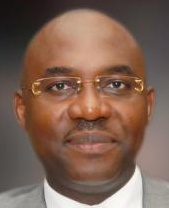










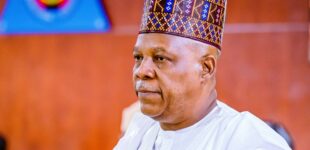
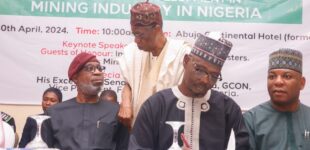
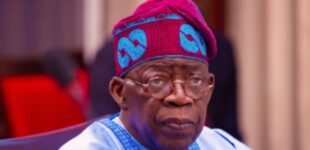


There are no comments at the moment, do you want to add one?
Write a comment